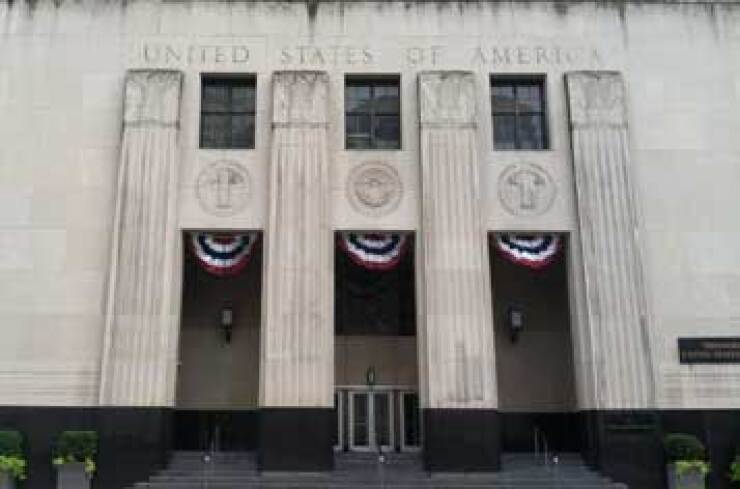
CHICAGO - With the votes in on Detroit's plan to deal with its $18 billion of debt, the stage is set for August confirmation hearings that will pit some of the bankrupt city's unhappy bondholders and insurers against employees and retirees who overwhelmingly endorsed the city's plan.
Detroit has reached tentative and approved settlements with most of its creditors, including retirees, pensioners, and the insurers of its unlimited-tax and limited-tax general obligation bonds.
It has not reached deals with the holders of its certificates of participation, water and sewer bonds, or the insurers wrapping that debt. Many of the voting results, although not all of them, reflected those agreements.
The plan of adjustment would eliminate about $7.4 billion of the $18 billion debt load the city carried when it entered its historic Chapter 9 bankruptcy a year ago this month. It calls for $1.7 billion in reinvestment initiatives. Votes by the impacted classes of creditors were due July 11 and
Detroit's retirees and employees endorsed the plan of adjustment. Retired and active members of the police and fire system favored the plan by 82% as did 73% of members in the civilian system. More than 15,000 valid ballots were cast by members.
In a separate ballot they also supported a 90% cut in their healthcare benefits. Their votes were tied to the so-called "grand bargain" that exchanges financial support from the state and not-for-profit foundations to ease retiree pension cuts for preservation of the assets of the city's Detroit Institute of Arts by placing the museum in a protective trust. The grand bargain hinged on the outcome of their vote.
Retirees accepted the limited cuts over larger ones the city could have pursued. While the retirees could have challenged the cuts they would have risked an uncertain outcome.
For class approval, a simple majority of creditors representing claims that total at least two-thirds of the total debt in that class was needed.
While the final voting tally is not binding on U.S. Bankruptcy Court Judge Steven Rhodes, the city will argue it shows the plan offers the best solution going forward. Rhodes must decide if the plan is fair, equitable, feasible, and in the best interest of creditors.
"The voting shows strong support for the city's plan to adjust its debts and for the investment necessary to provide essential services and put Detroit on secure financial footing," the city's emergency manager, Kevyn Orr, said in a statement.
The votes clear the way for what Orr called the "final phase" of the bankruptcy.
Many bondholders and the insurers who cover some of the debt disagreed with Orr's assessment after being asked to take steeper haircuts. The city's limited tax general obligation bond holders and holders of the certificates of participation voted against the plan. The class of unlimited tax GO bondholders the city lumped in the unsecured category approved it.
Bond insurers who wrap the city's nearly $1.5 billion of pension-related certificate of participation debt - which the city wants to erase -- voted against the plan.
The bank counterparties on the city's swaps tied to the COPs -- Bank of America's Merrill Lynch Capital Services and UBS AG - approved the plan. The two are party to a settlement with the city, approved by Rhodes, to settle their nearly $300 million claim for $85 million.
Two bond insurers - Financial Guaranty Insurance Co. and Syncora Guarantee Inc. - who back the COPs blasted their treatment in the plan and said they would fight it during the trial. The city has offered them no more than 10 cents on the dollar.
"We understand why the retirees and unions voted in favor of the city's plan - if we were offered a similar deal we too would approve the plan," the company said in a statement. "Unfortunately, the city's current offer to FGIC and the COPs bondholders in the plan is completely inferior, and until the city treats us fairly, we are compelled to fight for the fair and equitable treatment that is our right under the bankruptcy code," the statement said.
"We are not surprised at the vote given the Grand Bargain's illegal diversion of highly valuable assets to the very creditors who voted yes," Syncora's lawyer at Kirkland & Ellis, James Sprayregen, said in a statement. "We look forward to the confirmation hearing and demonstrating to the court that the plan cannot legally be confirmed given its unfair discrimination against financial creditors and other serious infirmities."
While the city has settlement agreements on several key debts, it filed a lawsuit earlier this year challenging the legality of the COP issuance.
The creditors, including insurers, for much of the city's $388 million of unlimited-tax GOs approved the plan. They have a pending deal that calls for a 74 % recovery.
The creditors, including bond insurers, for much of the city's $164 million of limited tax GOs rejected the plan. The city has offered 34 cents on the dollar and a tentative settlement has been reached although the terms have not been released.
Bondholders and insurers on $5.3 billion of secured water and sewer debt rejected the plan. The city wants bondholders to either take a lower interest rate or waive their call protection.
There are 150 subclasses of holders with 119 voting against the plan and 32 voting in its favor.





